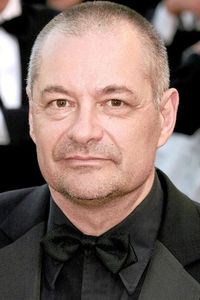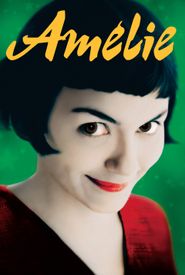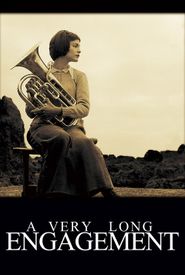Jean-Pierre Jeunet, a self-taught director, was drawn to cinema from an early age, with a predilection for fantastical cinema where form is as important as the subject. He started his career by directing TV commercials and video clips, including one for Julien Clerc in 1984. Simultaneously, he met designer/drawer Marc Caro, with whom he created two short animation films: L'évasion (1978) and Le manège (1979),the latter winning a César for best short film. Their subsequent collaboration, The Bunker of the Last Gunshots (1981),combined sci-fi and heroic-fantasy elements in a visually delirious story about rising paranoia among soldiers trapped underground.
Jeunet and Caro spent over a year meticulously crafting every detail of their third short film, garnering several festival prizes in France. This marked their first collaboration with Gilles Adrien, who would later write the story for their feature films. After that, Jeunet directed two more short films without Caro: Pas de repos pour Billy Brakko (1983) and Foutaises (1989),which won a second César.
In 1991, Jeunet and Caro transitioned to feature films with Delicatessen, which was a huge success, winning four Césars, including best new director(s) and best scenario. Jeunet and Caro divided responsibilities, with Jeunet guiding the actors and Caro coordinating the artistic elements. The film featured a recurring cast of actors, including Dominique Pinon, Rufus, Jean-Claude Dreyfus, and Ticky Holgado, who would appear in Jeunet's future films.
The success of Delicatessen surprised Jeunet and Caro, but they used it as an opportunity to develop their almost decade-old project, The City of Lost Children (1995). This black tale was innovative for its time, requiring the creation of new software for the special effects. Jeunet and Caro maintained their responsibilities from Delicatessen, and the film combined international skills, including US actor Ron Perlman, Chilean-born actor Daniel Emilfork, Iranian cinematographer Darius Khondji, American-Italian composer Angelo Badalamenti, and French fashion designer Jean-Paul Gaultier.
Despite some critics labeling the film "dark," Jeunet and Caro argued that it was no more "dark" than Pinocchio (1940) or Bambi (1942). The film's success led to Jeunet being approached by Hollywood, and he left France to direct Alien Resurrection (1997). Marc Caro followed him as a design supervisor, and Jeunet brought many of his usual collaborators, including actors Dominique Pinon and Ron Perlman, and technicians Pitof, Darius Khondji, and Hervé Schneid.
In 2000, Jeunet returned to France to make a more personal film, Amélie (2001),which he co-wrote with Guillaume Laurant. The film was shot mostly in the Parisian suburb of Montmartre, where Jeunet lives, and starred Audrey Tautou and Mathieu Kassovitz. Amélie became the biggest worldwide success in French cinema history, winning numerous awards, including four Césars.
Jeunet's next project was an adaptation of Sébastien Japrisot's book A Very Long Engagement (2004),which he co-wrote with Audrey Tautou and Dominique Pinon, and featured many other famous French actors and Jodie Foster. The film had one of the most significant budgets in French film history and received international success and numerous nominations and awards.
































